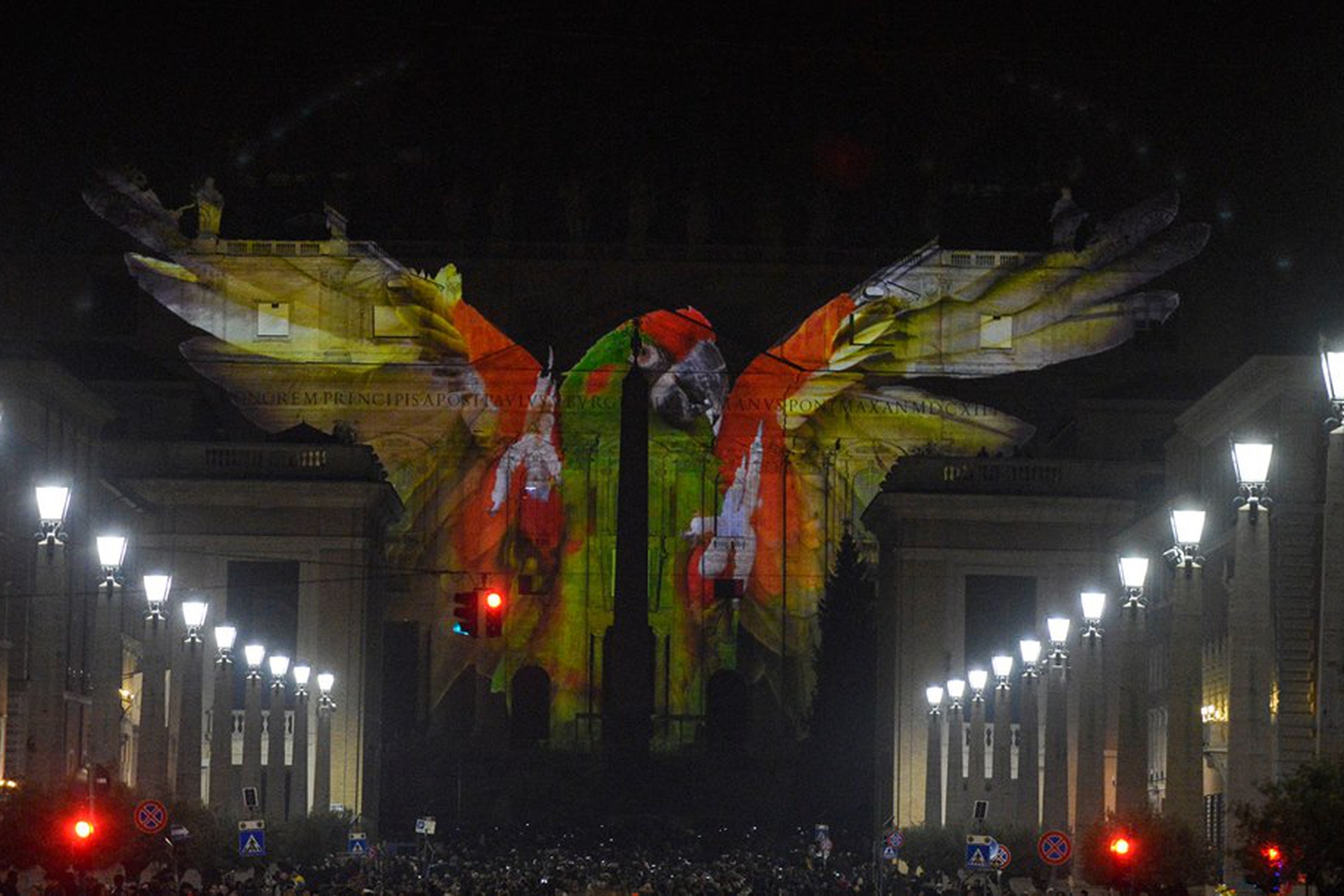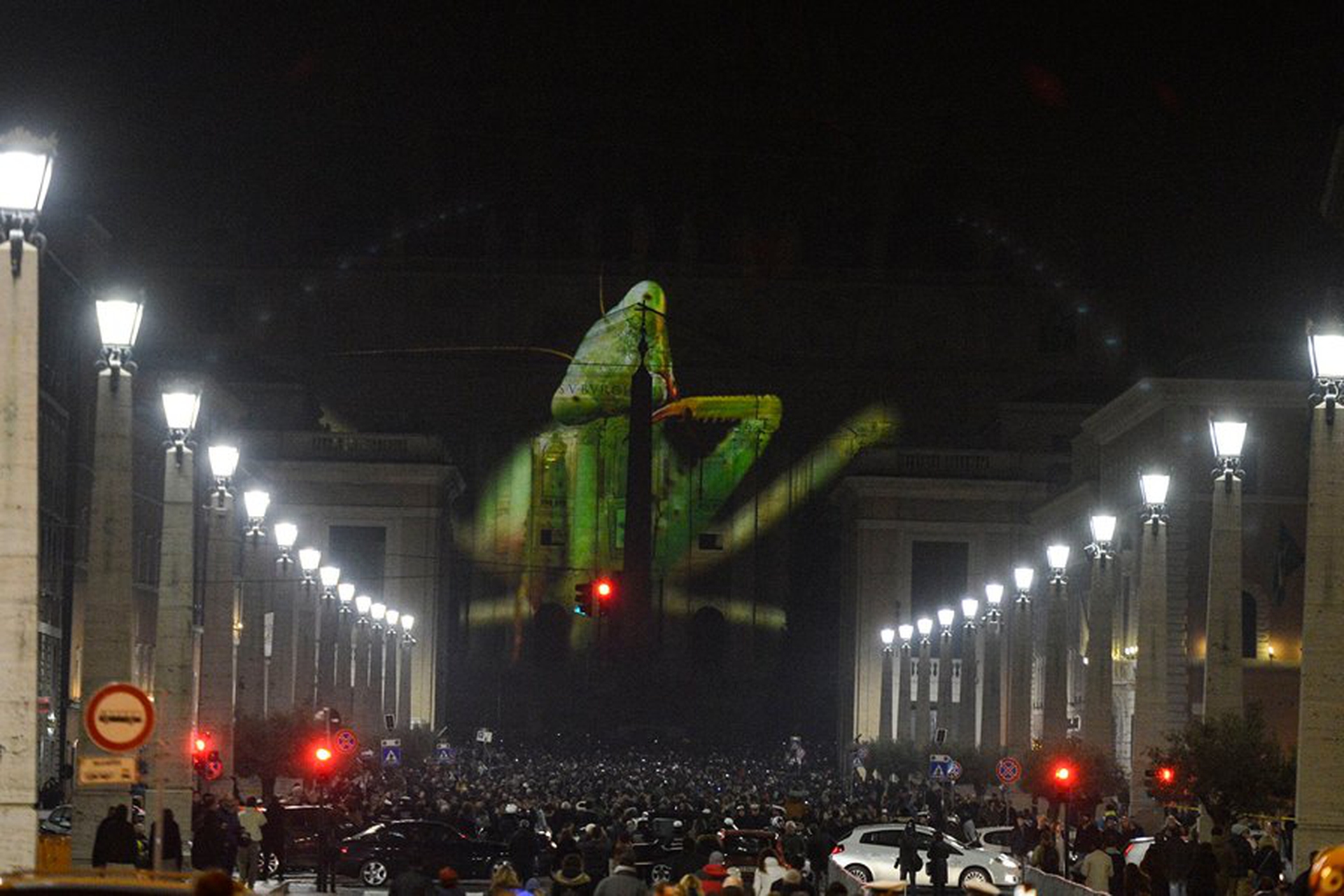Fiat Lux - A Look At Light And Language
When we hear the words "fiat lux," a powerful image often comes to mind, a sense of creation, a moment when something comes into being. This ancient expression, deeply rooted in history and thought, actually holds a bit more nuance than its common translation might suggest, and it's quite interesting to consider the slight shifts in meaning that can occur when a phrase moves from one tongue to another, or so it seems.
The original Latin, you know, carries a particular weight, a subtle difference from simply saying "may light exist." It's more about light coming into existence, a very active sort of command, a call for something to truly manifest. This small distinction, really, can change how we think about the very act of bringing things forth, whether it's an idea, a physical object, or even a sense of clarity.
This idea of light and its appearance, so to speak, isn't just for grand, old texts; it touches our everyday experiences too, from the tools we use to the way we seek out information. It even plays a part in how we understand our own thoughts and the broader connections we make in the world around us, and that, is that, something to think about.
Table of Contents
- The Nuance of "Fiat Lux" - What Does it Truly Mean?
- Light, Luxury, and Language - How Words Play with Meaning
- When Light Fades - A Practical Look at "Fiat Lux" in Action
- Beyond the Light - What Other Maxims Share This Power?
- Is Reason Our Inner "Fiat Lux"?
- Seeking Illumination - Where Do We Find Answers?
- Why Do Words Get Mixed Up - The Case of "Medium" and "Medius"
- The Continuous Quest for "Fiat Lux"
The Nuance of "Fiat Lux" - What Does it Truly Mean?
The Latin phrase "fiat lux" often gets translated into English as "let there be light." This rendering, while common, doesn't quite capture the full feeling of the original words. You see, there's a small but significant difference between "may light exist" and "may light come into existence." The first, "sit lux," suggests a state of being, a wish for light to simply be present. The second, "fiat lux," carries a much stronger sense of action, a command for light to actively appear, to burst forth, as a matter of fact. It's about creation, about something being brought into being through a declaration. This distinction, you know, changes the entire feel of the expression, making it less of a gentle hope and more of a forceful command for something to happen. It's almost as if the very act of speaking the words causes the light to appear, which is a powerful idea to consider.
When we consider the origins of such a phrase, we can appreciate the care taken with each word. The choice of "fiat" over "sit" shows a deliberate intention, a push for an active creation rather than a passive presence. This is a very interesting point about language, how a single word can carry so much weight and direct a thought in a specific direction. It suggests a process, a moment where something that was not present suddenly becomes so, a true act of making. It's a bit like the difference between saying "I hope it rains" and "Let it rain!" One is a wish, the other, in a way, a call for an occurrence, a direct instruction for the event to unfold. This deepens our appreciation for the older forms of speech and how they convey meaning with such precision, or so it seems.
Light, Luxury, and Language - How Words Play with Meaning in "fiat lux"
Words, you know, can be tricky things. They often carry more than one meaning, especially when they move between different tongues or get used in new settings. There's a thought that the term "lux" might not just mean light, but could also hint at something fancy or expensive, a bit like the French word "de luxe." This idea comes up when thinking about certain stories or products where the name might be playing on both concepts at once. So, "ex lux" could be a way of saying "out of light" but also, perhaps, "out of luxury" or "from a place of fine things." It's a clever way to use language, really, to add layers of meaning to a simple phrase. This sort of wordplay is quite common, where a single sound or spelling can point to two entirely separate ideas, and that, is that, a testament to how flexible words can be.
This double meaning, or double entendre as it's sometimes called, makes you think about how much thought goes into naming things or crafting phrases. If "lux" can mean both light and something of high quality, then a product or concept named "ex lux" could suggest it brings forth brilliance, or that it comes from a place of superior craftsmanship. It's a subtle nod to both the literal and the figurative, giving the phrase a richer texture. It shows how language isn't just about clear definitions, but also about suggestion, about hinting at broader ideas without saying them directly. This makes communication a bit like a puzzle, where you get to put together different pieces of meaning to see the full picture, which is, you know, pretty cool.
When Light Fades - A Practical Look at "Fiat Lux" in Action
The idea of light coming into existence isn't just an old saying; it has a very real, practical side to it, especially when we consider things we use every day. Take, for example, a device meant to give off light, like a camping light. Someone might have one, perhaps an Olight R50, which they use when spending time outdoors. This particular item might have the phrase "fiat lux" on it, a neat little nod to its purpose of creating light. However, even the best tools have their limits. The energy source for this light, the battery, might reach a point where it just doesn't hold its charge like it used to. This means that the light's ability to shine brightly for a long time starts to lessen, and it might even dim very quickly after being turned on, or so it appears.
When the energy supply for such a device starts to give out, you notice its performance drop. The "turbo" setting, which usually provides a very bright burst, might only last for a very short time before the light steps down to a lower setting. And the overall duration of time the light can stay on, even at lower settings, becomes much shorter. This situation, where the light's ability to create and sustain its brightness is compromised, makes the user consider getting a replacement energy source. It’s a moment where the practical need for "fiat lux"—for light to come into being and stay—becomes very clear, and the current state just isn't quite meeting the need. It's a tangible way to see how the concept of light's appearance and endurance plays out in our daily items, actually.
Beyond the Light - What Other Maxims Share This Power?
The way "fiat lux" works as a powerful statement, a command for something to happen, is not unique to this particular phrase. There are other old sayings, or maxims, that carry a similar kind of weight and authority. One that comes to mind, and is quite well-known, is "fiat justitia ruat caelum." This one means "let justice be done though the heavens fall." It's a declaration that justice, no matter what, must happen, even if it causes a great upheaval or brings about dire consequences. This maxim, like "fiat lux," uses the word "fiat" to express a strong, unyielding demand for a particular action or outcome to occur, regardless of the difficulties involved. It shows how these older forms of expression can carry a deep sense of conviction and purpose, you know, a very strong feeling.
The idea behind these powerful statements is that certain principles or actions are so important that they must be carried out, come what may. They are not suggestions or hopes, but rather firm directives. The use of "fiat" in both "fiat lux" and "fiat justitia" really brings this point home. It emphasizes that the thing being spoken of – whether it's light or fairness – is not just wished for, but commanded to happen. This kind of language has been used throughout history to express core beliefs and to guide important decisions, showing the enduring strength of such direct and forceful declarations. It's a fascinating look at how language can be used to convey absolute certainty and resolve, really.
Is Reason Our Inner "Fiat Lux"?
Sometimes, the idea of light isn't about something we can see with our eyes, but about a different kind of illumination. There's a thought that reason itself, the ability to think clearly and make sense of things, acts like a light within us. This perspective suggests that reason, on its own, has a natural brightness, a way of shining and making things clear. And at the same time, this inner light of reason also spreads its brightness and clarity over other areas of our lives and thoughts. It's almost as if reason is constantly saying "fiat lux" within our minds, bringing understanding to what might otherwise be confusing or unclear. This makes reason a very powerful tool for making sense of the world around us and for guiding our actions, a bit like a guiding star, in a way.
This idea of reason as a source of light suggests that when we use our minds to think through problems, to consider different ideas, or to learn new things, we are essentially turning on a light inside. This light helps us see things more clearly, to connect different pieces of information, and to gain a better grasp of situations. It’s a process of bringing mental clarity into existence, much like how "fiat lux" brings physical light into being. So, when we seek to understand something, we are, in a sense, asking our reason to shine brightly, to illuminate the path to knowledge. This highlights the incredible value of thoughtful consideration and logical thought in our daily lives, and that, is that, a profound concept.
Seeking Illumination - Where Do We Find Answers?
When we need to understand something, or when we are looking for information, we often turn to places where knowledge is shared. Think about the vast connections of people who ask and answer questions online. There are many groups, nearly 183 of them, where people gather to share what they know. One of the biggest and most relied-upon places for those who create computer programs or build digital things is a community called Stack Overflow. This place, and others like it within the same overall structure, serves as a trusted spot for individuals who make software to learn from each other, to share their experiences, and to find solutions to problems they might be facing. It’s a bit like a collective "fiat lux" for ideas, where questions are asked and clarity is brought forth by many different voices, actually.
These online communities are built on the idea that by bringing together many different perspectives and experiences, a greater pool of knowledge can be formed. When someone has a question, they put it out there, and others who have experience or insight can offer their thoughts. This exchange of ideas helps to shed light on difficult topics, making them easier for others to grasp. It’s a continuous process of bringing light to areas that might be dim or unclear for some individuals. So, when we are looking for answers, these types of platforms become very important spaces for finding that illumination, for having a kind of "fiat lux" moment where a solution or a piece of understanding suddenly appears, or so it seems.
Why Do Words Get Mixed Up - The Case of "Medium" and "Medius"
It's quite easy, you know, for words that look or sound similar to get confused, even if they have different meanings. This happens quite often, and it can lead to a bit of misunderstanding. Take, for instance, the Latin noun "medium." This word refers to something that is in the middle, or a central point. It speaks of a place or a state that is positioned between two other things. Then there's the Latin adjective "medius." This word describes something as being central, as having a quality of being in the middle. So, one is a thing, a place, and the other is a description, a characteristic. It’s a very subtle but important difference that can change the entire sense of a phrase, and that, is that, something to be aware of.
When people use an old saying, or an idiom, that involves going "into central things," they are referring to the core ideas or the main aspects of a subject. This is where the distinction between the noun and the adjective becomes important. If you mix them up, the meaning of the idiom can become unclear. Understanding that "medium" is a place or a center, and "medius" describes something as being central, helps to make sense of expressions that talk about getting to the heart of a matter. It shows how careful we need to be with words, especially in older languages, where small changes in form can mean big differences in what is being communicated. It's a reminder that language has its own kind of precision, really, and paying attention to these small details can make all the difference.
The Continuous Quest for "Fiat Lux"
The idea of "fiat lux," of light coming into being, extends far beyond its original context. It touches on our personal experiences with technology, like a light that needs a new energy source to shine again. It also connects with the way language itself works, how words can hold multiple meanings, like "lux" suggesting both brightness and something of high quality. And it reminds us of the larger principles that guide us, such as the unwavering call for fairness, much like "fiat justitia ruat caelum." This ancient phrase, you know, continues to offer insights into how we think about creation, clarity, and the very nature of understanding.
From the personal need for a device to work as it should, to the collective effort of sharing knowledge in online communities, the drive for "fiat lux"—for things to become clear, for solutions to appear, for truth to shine—is a constant thread. It’s a reminder that whether we are dealing with a fading light, a tricky word, or a complex idea, there is always a push to bring forth clarity and understanding. The essence of "fiat lux" is about making things visible, making sense of what is around us, and bringing forth what is needed, and that, is that, a timeless pursuit.

Fiat Lux, the Vatican becomes home to the world’s richest biodiversity

Fiat Lux, the Vatican becomes home to the world’s richest biodiversity

Fiat Lux, the Vatican becomes home to the world’s richest biodiversity